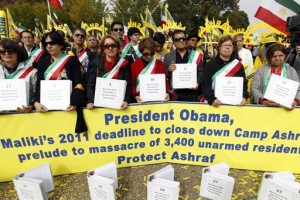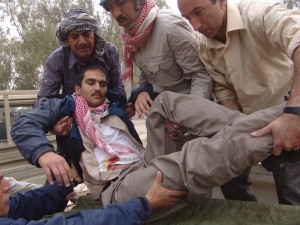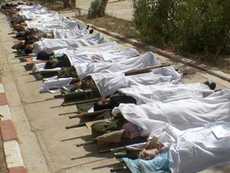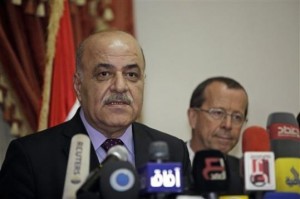Struan Stevenson, MEP, the President of the Delegation for Relations with Iraq in the European Parliament described the visit by H.E. Massoud Barzani, president of Iraq’s Kurdistan Region as constructive for EU strategic relations with Iraq, and particularly Iraqi Kurdistan and looked forward to these relations being expanded in future.
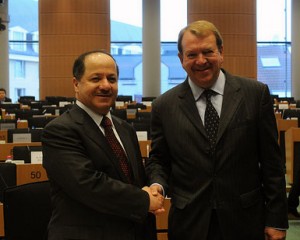
Struan Stevenson, MEP, the President of the Delegation for Relations with Iraq in the European Parliament discusses the humanitarian crisis with H.E. Massoud Barzani, president of Iraq's Kurdistan Region.
Struan Stevenson commended the political and economic progress of Iraqi Kurdistan under President Massoud Barzani’s leadership and asked for an expansion of economic and political cooperation of the EU and its Member States with Iraqi Kurdistan.
In a meeting with President Barzani and leading members of the KRG, a common desire for continuing progress and improvements in human rights inside Iraq was expressed, together with respect of the rights of ethnic minorities and different religions. To this end, Struan Stevenson said that Kurdistan acts as a shining example to the rest of Iraq in its peaceful environment and tolerance of minorities and different religions.
Commenting after the meeting in Brussels, Struan Stevenson said:
“President Barzani asked for mutual expansion of economic and political cooperation and underscored the need for expanding European investment in Kurdistan and Europe’s role in the democratic process and economic progress in Iraq.
“President Barzani also expressed his long-held view that the Iraqi Government’s current approach to the crisis in Camp Ashraf will not succeed and stressed the need for the tactics to change and in particular for the residents of Ashraf to be treated in a humanitarian way. I pointed out that the Ashraf residents must now be regarded as people of concern to the UN and as bona fide asylum seekers and political refugees in Iraq. I also stressed that the Iraqi government’s deadline for the closure of Ashraf was a hindrance to the work of UNHCR and should be revised without delay to enable the refugee status of the Ashraf residents to be confirmed and their re-settlement to third countries facilitated in line with the wishes of the EU, the UNHCR, the UN Special Envoy to Iraq, Amnesty International, and the US Congress. President Barzani said that he would do everything he could to help in order to find a peaceful resolution to this crisis.”
